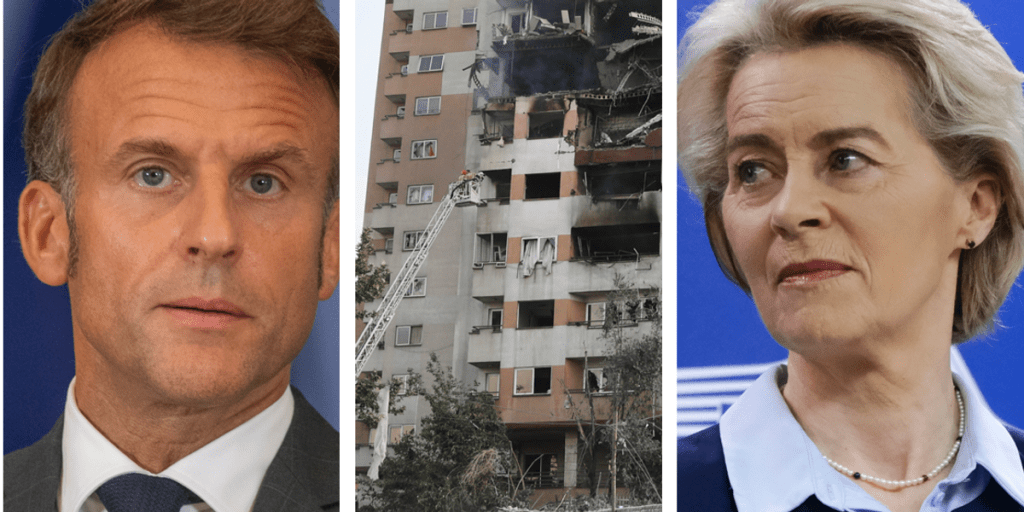Israeli Airstrikes in Iran
This week, Israeli warplanes launched attacks on Iran, blatantly violating its sovereignty and resulting in numerous civilian casualties along with the deaths of high-ranking military officials and nuclear scientists. In response, Iran has threatened retaliatory strikes, yet European leaders have remained silent on condemning these actions.
European Leadership’s Reaction
Instead of denouncing the aggression, they criticized Iran for its responses. French President Emmanuel Macron initiated this narrative by condemning Iran’s “ongoing nuclear program” while emphasizing “Israel’s right to defend itself.” Ursula von der Leyen, the European Commission President, echoed similar sentiments, asserting Israel’s right to self-defense while advocating for restraint and de-escalation.
Germany’s Position
The German foreign ministry went a step further, condemning Iran for allegedly attacking Israeli territory before any such actions occurred, while simultaneously affirming Israel’s military actions. This contradictory stance reflects a troubling inconsistency in European diplomatic conduct.
The Implications of European Double Standards
This duality in Europe’s approach has severely undermined its credibility on the global stage. While the EU firmly invoked the U.N. Charter in the context of the Ukraine conflict, it dismissed the illegitimacy of Israel’s unprovoked military strikes on Iran, effectively framing aggression as justifiable.
International Voices of Dissent
Critical voices like Mohamed ElBaradei, a Nobel Laureate and former head of the U.N. atomic energy agency, have publicly challenged Germany’s endorsement of Israeli strikes, highlighting their prohibition under international law. Francesca Albanese, a U.N. special rapporteur, criticized Macron’s comments, underscoring the biased perception of Israel’s self-defense claims in the Middle East.
Failures of European Diplomacy
This crisis is a culmination of longstanding European diplomatic failures. The European trio’s inability to adhere to the Joint Comprehensive Plan of Action (JCPOA) following the U.S. withdrawal in 2018 has left a power vacuum that both escalates tensions and fosters Iran’s skepticism regarding negotiations.
Consequences of Diplomatic Irrelevance
The disconnect between European calls for de-escalation and Iran’s view of Europe as complicit in aggression has effectively eroded any trust remaining. The potential for Iranian withdrawal from key international treaties looms larger as Europe’s role in the region continues to diminish, threatening both regional stability and European interests.



